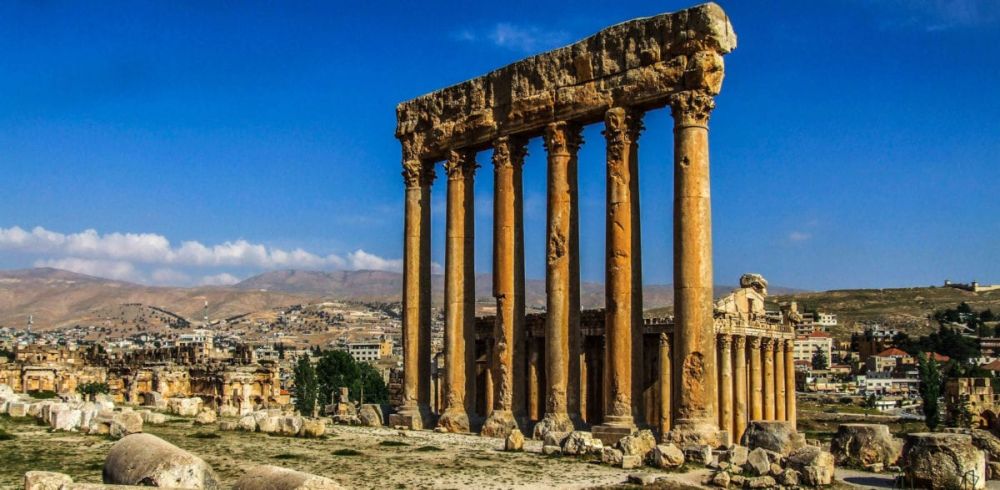

Lebanon, with its rich history, diverse culture, and natural beauty, has a long-standing tradition in tourism dating back to the 19th century. Its historical allure, coupled with cosmopolitan cities like Beirut, once earned it the title of the "Paris of the Middle East." After gaining independence in 1943, Lebanon invested in tourism infrastructure, highlighting its heritage and natural landscapes. Despite periods of volatility due to political instability and conflicts, Lebanon has consistently sought to rebuild and promote its tourism sector. In recent decades, with the stabilization in some areas, the country has experienced a resurgence in tourism, drawing visitors to its ancient sites, culinary experiences, and vibrant nightlife.
The Temple of Jupiter is one of the grandest historical sites within the Baalbek Ruins, which are located in the Beqaa Valley. This ancient city, known as Heliopolis during the Hellenistic period, was a center for worship and was adorned with some of the largest and most impressive temples in the Roman Empire. The Temple of Jupiter, dedicated to the highest Roman god, was constructed on a podium that towers over the complex and was famed for its 54 gigantic granite columns, each of which soared to a height of 22 meters. Unfortunately, only six of these magnificent columns remain standing today, serving as a testament to the architectural ingenuity of the Romans.
The Baalbek Ruins attract thousands of visitors each year, offering an incomparable glimpse into the grandiosity of Roman architecture and the religious practices of ancient times. Tourists can also explore the surrounding temples such as the Temple of Bacchus, one of the best-preserved Roman temples available to see anywhere. Its lavishly decorated interiors, monumental gateways, and the sheer scale of the ruins make it a pivotal site for archaeologists, historians, and travelers alike.
In recent years, Lebanon has worked to promote sustainable tourism practices, endeavoring to protect and preserve its unique heritage sites for future generations. The tourism industry is also diversifying, with a growth of interest in agritourism, eco-tourism, and adventure travel. Visitors are increasingly seeking authentic cultural experiences, leading to a rise in local guided tours, culinary tours, and homestays. Although the Temple of Jupiter and the Baalbek Ruins remain a primary attraction, these emerging tourism trends are enhancing visitors' understanding and appreciation of Lebanon's multifaceted identity.
The Temple of Jupiter at the Baalbek Ruins stands as an icon of Lebanon's historical prominence and its enduring appeal as a tourist destination. Despite fluctuations in the tourism landscape, Lebanon's efforts to highlight its ancient treasures while embracing contemporary trends promise an enriching experience for all who visit this Mediterranean gem.